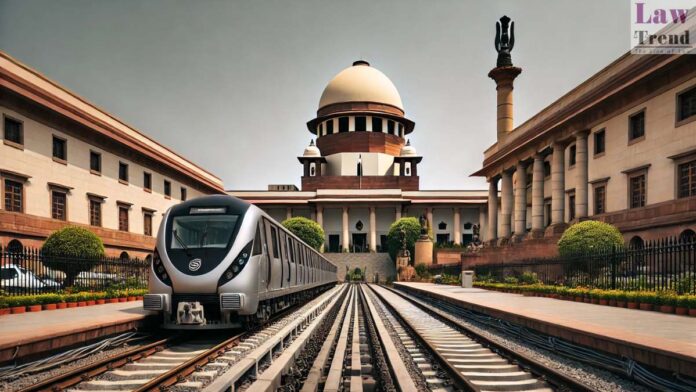The Supreme Court of India has held that a passenger holding a valid ticket who boards a “wrong train” by mistake cannot be construed as not being a “bona fide passenger.” Reversing a High Court decision, the apex court restored a compensation award of Rs. 8,00,000/- granted by the Railway Claims Tribunal to the parents
To Read More Please Subscribe to VIP Membership for Unlimited Access to All the Articles, Download Available Copies of Judgments/Order, Acess to Central/State Bare Acts, Advertisement Free Content, Access to More than 4000 Legal Drafts( Readymade Editable Formats of Suits, Petitions, Writs, Legal Notices, Divorce Petitions, 138 Notices, Bail Applications etc.) in Hindi and English.




